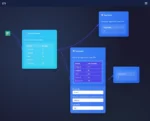You’ve likely uttered these words: “Our data team just doesn’t deliver.” This maybe true if they have no experience delivering.
However, before pointing fingers at your analysts or engineers, it’s worth looking deeper. More often than not, ineffective data practices stem not from a lack of expertise, but from inadequate project management and misaligned strategic oversight.
Once met an engineer who was trying to stream data from a system that didn’t have an easy process for streaming. They had no idea why this needed to happen as they felt their previous process could enable real-time processing. The product manager was not willing to talk to the data team. This means the project never left the discovery phase.
The era of effective data-driven decision-making has arrived, and organizations are racing to unlock these opportunities. But too many still fail to grasp the fundamental link between successful analytics projects and robust, nuanced project management. As business leaders and decision-makers aiming for innovation and scale, we need to reconsider where responsibility truly lies. Stop blaming the data team and start reframing your approach to managing analytics projects. Here’s how.
Clarifying Project Objectives and Expectations
An unclear project objective is like navigating without a compass: you’re moving, but are you even heading in the right direction? It’s easy to blame setbacks on your data team; after all, they’re handling the technical heavy lifting. But if the project lacks clear, agreed-upon goals from the outset, even brilliant analysts can’t steer the ship effectively. Clarity begins at the top, with strategy-setting executives articulating exactly what they want to achieve and why. Rather than simply requesting ambiguous initiatives like “better analytics” or “AI-driven insights,” successful leadership clearly defines outcomes—whether it’s market basket analysis for improved cross-selling or predictive analytics for enhanced customer retention. An effective project manager ensures that these clearly defined analytics objectives and desired outcomes are communicated early, documented thoroughly, and agreed-upon universally across stakeholders, making confusion and aimless exploration a thing of the past.
Want to understand how clearly defined analysis goals can empower your organization? Explore how businesses master market basket analysis techniques for targeted insights at this detailed guide.
Adopting Agile Principles: Iterative Progress Beats Perfection
Perfectionism often stifles analytics projects. Unrealistic expectations about results—delivered quickly, flawlessly, on the first try—lead teams down rabbit holes and result in missed deadlines and frustration. Blaming your data experts won’t solve this predicament. Instead, adopting agile methodologies in your project management strategy ensures iterative progress with regular checkpoints, allowing for continual feedback and improvement at every step.
Remember, data analytics and machine learning projects naturally lend themselves to iterative development cycles. Agile approaches encourage frequent interaction between stakeholders and data teams, fostering deeper understanding and trust. This also enables early identification and rectification of mismatches between expectations and outcomes. Incremental progress becomes the norm, stakeholders remain involved and informed, and errors get caught before they snowball. Effective agile project management makes the difference between projects that get stuck at frustrating roadblocks—and those that adapt effortlessly to changes. Stop punishing data teams for an outdated, rigid approach. Embrace agility, iterate frequently, and achieve sustainable analytics success.
Strengthening Cross-functional Collaboration
Your data projects span multiple departments and require cross-functional collaboration to generate true business value. Yet we often see data initiatives siloed within specific units, isolated away from crucial business users who could leverage the insights best. This constrained communication restricts understanding, leading to incomplete or misaligned solutions, confusion, and ultimately finger-pointing at the data team.
Strong and disciplined project managers understand that cross-functional communication forms the essential backbone of successful analytics projects. It’s crucial to push beyond organizational silos, enabling proactive cooperation among marketing, finance, operations, IT, and data professionals. Project managers and organizational leaders have a crucial role to break down these barriers, designing inclusive communication channels that promote continuous collaboration and knowledge sharing.
By doing so, insights generated through analytics or artificial intelligence initiatives reach the stakeholders who truly need them, promoting holistic company-wide benefits. Effective cross-functional interaction provides context, reduces guesswork, and ensures the analytics team is working with relevant information and realistic expectations. Blaming your data experts will become unnecessary once impactful collaboration and open communication become standard practice.
Choosing and Supporting the Right Technology
Technological hurdles can mistakenly seem like failures on behalf of data engineers or analysts. But consider carefully: Has your team simply been provided with outdated, unsupported or undocumented legacy systems by leadership? Are they asked to perform magic without adequate tools or infrastructure?
The success of analytics and AI initiatives depend heavily upon having the technology stack and framework to support sophisticated data workflows. As strategic leaders, it’s imperative that your project management process includes an earnest examination and improvement of your organization’s tech infrastructure. Are you leveraging the latest modern data practices and using efficient task automation through technologies like Node.js? Adequate technology choices significantly empower the pace, accuracy, quality, and accessibility of analytics outcomes.
If your development and analytics teams constantly encounter setbacks, delays or quality issues, rather than hasty finger-pointing, seek expert guidance to enhance your technical design and capability. Consider working with experienced specialists, such as our Node.js consulting services, designed to enable your data and analytics teams to deliver consistent results. When provided with proper infrastructure and organizational support, your data professionals thrive.
Prioritizing Education and Data Literacy Across the Organization
Does your company’s data literacy resemble a narrow pyramid, with only a handful possessing effective understanding? Unfortunately, achieving sustained analytics success isn’t just about hiring and maintaining a highly skilled data team. It’s equally important—arguably more important—that your entire organization embraces a foundational data literacy.
A data-informed organization ensures decisions across the board, strategic to tactical, are informed by real, accurate data interpretation rather than hunches or misconceptions. Executives, middle-management, and frontline personnel alike benefit from ongoing educational initiatives designed to boost analytical skills and understanding. Without this foundational data competency, analytics results become underutilized or misunderstood altogether, leading to misplaced frustration with the data team.
To understand more, consider our insights about enabling data-driven decision making or explore in-depth how education boosts your organization’s strategic intelligence and analytics adoption. A strong project manager will prioritize continuous education and data literacy efforts, ensuring analytics capabilities are fully understood and leveraged, thus eliminating unjustified blame and bottlenecks.
Recognizing Analytics Is an Ever-evolving Process (Not a One-time Fix)
Finally, leaders must change their mindset around analytics. It isn’t a one-time project or magic solution to be implemented once and forgotten. Analytics and AI are sustained journey processes—continuously evolving, expanding, and developing as your organization matures.
Successful companies constantly experiment, learn, and adapt. They approach analytics not as a short-term solution, but as an ongoing strategic capability for incremental improvement. Innovative applications of analytics—such as leveraging artificial intelligence in real-world business scenarios—continually appear and evolve, providing opportunities to enhance your operations. Military precision in project start and end dates doesn’t suit data analytics’ exploratory nature.
Instead of seeing projects as finite, recognize analytics as a permanent organizational capability. This shift prevents unjust blame and unrealistic expectations placed upon your data team. To see how successful businesses leverage AI strategically for long-term advantage, explore these valuable real-world applications of artificial intelligence in business. Let your analytics initiatives evolve fluidly, led by flexible project management principles.
Conclusion: Optimize Project Management, Empower Your Data Team
Next time your data project stalls or fails to deliver as expected, pause before blaming the analytics experts. Is it truly their technical expertise falling short—or perhaps ineffective project management, unclear objectives, flawed collaboration practices, inadequate technology choices, poor data literacy, or unrealistic project expectations?
Enhancing your project management and organizational approach is key to unlocking the full potential of your data professionals. Instead of placing blame on data teams, invest in management practices that empower your analytics ecosystem and leverage your data resources wisely. Thorough planning, clear communication, streamlined collaboration, agile methods, technology preparedness, and continual education pave the way to sustainable analytics excellence. Shift your mindset, empower your project management—and watch your analytics projects deliver consistent, impactful business outcomes.

























